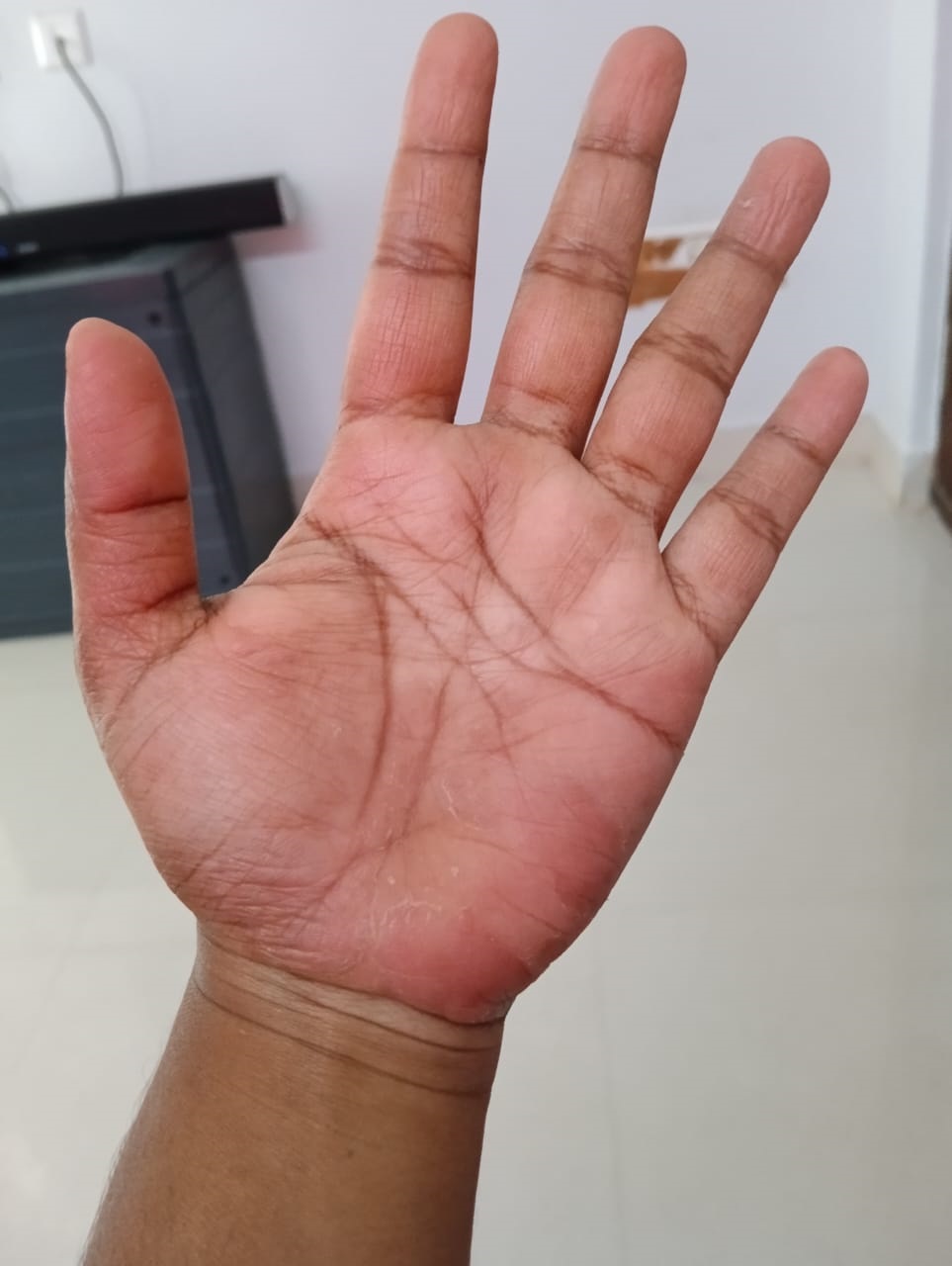Psoriasis
Introduction
The rapid accumulation of skin cells is a symptom of the chronic autoimmune skin disease psoriasis. This cell accumulation causes areas of thick, red, scaly skin to form, which can be painful and itchy. Although psoriasis can affect any area of the body, the head, elbows, knees, and lower back are the most frequently affected areas. Since psoriasis is not contagious, it cannot be transferred from one individual to another. Psoriasis is thought to be the result of a confluence of genetic, environmental, and immune system factors, though its precise origin is still unknown. A person’s quality of life may be significantly impacted by psoriasis, which can vary in severity from mild to severe.

Pathophysiology
Complex interactions between genetic, immune, and environmental variables make up the pathophysiology of psoriasis. Since T-cells, a type of white blood cell, are activated and cause the release of inflammatory cytokines, psoriasis is mainly an immune system disorder. These cytokines inflame the skin and encourage the growth of new skin cells, which results in the psoriasis-specific thick, scaly areas.
Genetic variables and the immune system both contribute to the onset of psoriasis. The activity of several genes, including those involved in the immune system and the skin barrier, has been linked to psoriasis. Environmental variables can also cause or exacerbate psoriasis, including stress, infection, and injury. For instance, skin damage can result in the Koebner phenomenon, a situation in which psoriasis develops.
Signs and Symptoms
The symptoms of psoriasis can vary in severity and may include:
- Anywhere on the body, but usually on the elbows, knees, scalp, and lower back, red, inflamed patches of skin coated in silvery scales.
- Inflammation, stinging, or pain in the affected regions.
- Dry, bleeding epidermis that is cracked.
- Nails that are thicker, scarred, or ridged.
- Pain, rigidity, or swelling in the joints (psoriatic arthritis).
- Nail discoloration and fissures.
- Minor scaling marks (commonly seen in children).
How do Dermatologists treat Psoriasis?
Some treatments for psoriasis include:
- Topical treatments: These are applied immediately to the skin’s affected regions and include creams, ointments, and gels. They can ease itchiness, lessen inflammation, and delay the development of new skin cells. Corticosteroids, vitamin D analogs, and calcineurin inhibitors are a few examples of topical therapies.
- Phototherapy: This involves exposing the skin to ultraviolet light, which can aid in reducing inflammation and slowing the development of skin cells. Using a specialised light box, phototherapy can be carried out at home or in a dermatologist’s clinic using a specialised light box.
- Systemic medications: These are drugs that can be administered intravenously or orally and decrease inflammation and skin cell growth throughout the body. Methotrexate, cyclosporine, and biologic medicines such as TNF-alpha inhibitors are a few examples of systemic medications.
- Lifestyle modifications: Some lifestyle modifications, such as lowering stress, upholding a healthy diet, and staying away from triggers like drinking and smoking, may help lessen the severity of psoriasis symptoms.

Before & After Treatment Images

